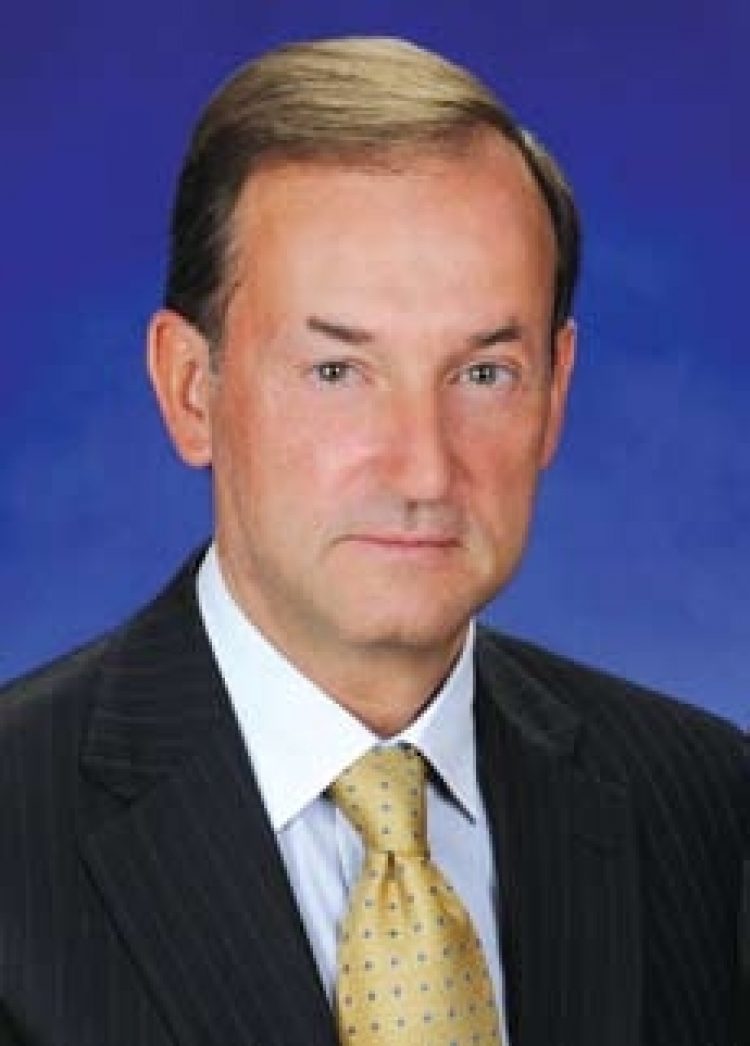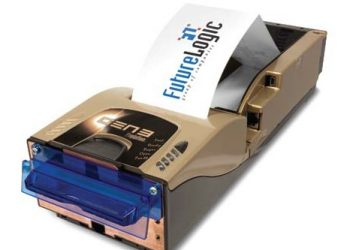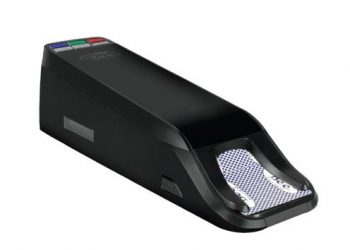The Gaming Standards Association on why casino operators and their suppliers should have an industry version of a prenuptial agreement
“The marriage is beautiful, but the divorce is ugly. That’s the problem.”
Peter DeRaedt is not a divorce lawyer, but he probably has some of the necessary professional skills. Essentially one of his roles in life is to counsel casino operators to get the industry equivalent of a ‘prenup’ when they tie the knot with technology suppliers.
“Unless vendors offer products that are Gaming Standards Association-certified, operators cannot be assured that the solutions are truly interoperable. That restricts the functionality that allows operators to grow,” says Mr DeRaedt, President of the GSA.
The GSA is an international trade association set up in 1998 for the benefit of gaming manufacturers, suppliers, operators and regulators. It defines its aims as to “facilitate the identification, definition, development, promotion, and implementation of open standards to enable innovation, education, and communication for the benefit of the entire industry”. If that sounds like something of a talking shop, think again. Mr DeRaedt and his management team are very results-focused and don’t shrink from knocking industry heads together where they feel it’s necessary.
“In essence, what the vendors do in practice is to create a symbiotic relationship that is not necessarily beneficial to the operators. Sometimes the operator is unaware of this. But the operator is then married to the system vendor. If the operator wants to change his system vendor, it can become an expensive endeavour.”
Mr DeRaedt delivers this message in a cheery if slightly weary tone—rather like an attorney who has seen umpteen formerly loving spouses traipsing to his office for advice. His cheeriness is all the more surprising given that in some respects he is biting the hand that feeds—and largely funds—his organisation; namely, the relatively close-knit community of gaming technology suppliers.
But he insists that ultimately his message—the promotion of truly open technical standards in the casino gaming industry—is a win-win for everyone. It will allow the whole industry to grow by creating the kind of blossoming of functions and applications that the world has seen in the personal computer and smart phone industries. One of his favourite analogies is that no-one now thinks twice about the ‘plug and play’ capabilities of USB (Universal Serial Bus) peripherals for PCs. But that‘s only possible, he says, because the personal computing industry embraced open technical standards.
“It has taken a lot longer to achieve this in casino gaming than in some other industries—in some ways a ridiculously long time,” says Mr DeRaedt.
The good news is that the process is now firmly underway. At the end of 2009, the GSA formally ended its support for SAS [Slot Accounting System]—a protocol that was initially developed as a proprietary technology by one vendor and then shared on a commercial basis within the industry—in favour of the GSA’s more open and universally-adaptable G2S [Game to System] protocol, allowing gaming machines to communicate with back office management systems.
“Standards are now clearly defined, they have been embraced, and the industry is moving towards convergence using these stable GSA standards,” says Peter DeRaedt.
“That’s a good sign because the operator should now feel comfortable that the goal of standardisation is not a moving target. Operators will be able to order GSA-certified products direct from the suppliers, with the functionality they need to run their business already built in,” he adds.
Inside Asian Gaming spoke to Mr DeRaedt in Macau and asked for his take on where the industry is going in technology terms and how the GSA can help.
IAG: What are the main points you have been making to the industry over the last year?
Peter DeRaedt: Technical standards for gaming have been maturing. We [as an industry] have made some very clear decisions as to functionality. We’ve scaled down the multiple releases of protocols brought out in the past. In 2012, GSA will continue to focus on certification.
At a board meeting in late August, GSA made a major decision to certify standards against industry-managed test scripts. That sounds simple, but it’s a complex undertaking. It means that the industry will collaborate in developing common test scripts. These scripts will be managed as an open source project; the result being that the quality of products will significantly increase.
Please explain a little more about open standards. When a manufacturer of say slot ticket printers says that their product is ‘hot swappable’, doesn’t that mean the industry is already using ‘plug and play’ technology like say USB devices with personal computers?
In the consumer product market that’s how it works. But in the gaming market plug and play can be achieved at one end point. That’s at the point of the gaming device on the floor. If you have a GSA- certified system, which the end point communicates to, and you have a GSA-certified gaming device end point, you would be able to exchange that gaming device with another GSA-certified gaming device without any problems. This is a major advantage for an operator as it allows him to swap GSA-certified games on the floor. On the systems side, ‘plug and play’ is not truly achievable as the scenario is a lot more complex.
When GSA says it’s no longer going to support the SAS [Slot Accounting System] protocol, is that like a car manufacturer saying ‘We’re no longer going to make this car, and we’ll be running down the stock of spare parts’? Or is that too simplistic?
It means there’s not going to be any further functionality added. The 6.2 version [of SAS] was the last one released that is supported by the industry. That means any extensions [of functionality] of a product using SAS 6.2 will be done by the owner of that product. The industry has agreed that it [SAS] is a dead-end, so-to-speak. They unanimously decided to support GSA’s open standards to grow their business. In theory, you can add some functionality to SAS, but it will not drive the innovation that the industry needs.
If I’m an operator and I have a lot of SAS-based equipment on my floor, where’s the incentive to speed up the move toward open standards?
It’s simply the freedom of choice. I think every operator today is married to its suppliers. And until operators come to understand the restrictions and financial constraints or contractual obligations that can go with not having open standards, that situation isn’t going to change. The open standards technology has been developed to allow operators freedom of choice. There’s a presentation I make as part of a dialogue with operators. It only uses five or six slides. That’s because I’ve been asked the following questions many times over the 14 years I’ve been promoting open standards, and they [the operators] all seem to be puzzled about it. The questions are: ‘What’s the value of GSA standards?’ and ‘Why should I adopt them?’
I start the dialogue very simply. Say I’m a CMO [chief marketing officer]—I’m the marketing guy of a property and trying to drive the business. I say to my CIO [chief information officer] or CTO [chief technical officer] ‘I want such-and-such functionality, because that’s what’s going to generate money for me. The CIO is then typically going to turn around and talk to his vendors—whoever they are and in whatever field, be it gaming, hospitality etc. Here’s what’s likely to happen. The vendors will say: ‘Here are my terms and conditions’—or restrictions. The operator’s CIO then goes back to the CMO and says ‘Here are the conditions and restrictions’. Often those do not align with the business priorities of the operator. That’s the major issue and this industry has been stifled as a result.
I believe there is significantly more business growth available—in mature as well as emerging markets—if an operator has the ability to innovate and complement the product offerings available today, rather than one vendor trying to vertically offer his products to the operator [a one-stop shop approach]. That’s the old model of information technology companies like Wang and IBM. But guess what? Vendors are not experts at everything. So open standards will move us towards a horizontal approach to sales promotion [joint effort between several suppliers], competition will increase, innovation will flourish and intellectual property will be a key differentiator. The net result it is that it will apply pressure to the current pricing and new innovative models will be developed based on the success of the products.
But how do you sell that idea to original equipment manufacturers when many of them are specifically marketing their services in a modular, one-stop shop way?
That’s the problem. They’re not masters of all trades. There are people [suppliers] who are good at bonusing, there are people that are good at accounting, there are people that are good at database infrastructure—and yet today you as an operator don’t have that choice.
So do GSA open standards allow operators to choose equipment that is ‘best of breed’ by creating an interface for technology from different suppliers?
That’s exactly the role of open standards. What the operator does at the moment is to spend additional capital trying to extract [from existing technology] the operational information he needs. He puts it into a data warehouse so that he can later analyse that information from his gaming and non-gaming operations and drive his marketing. Our argument is that open standards significantly streamline access and the exchange of information. With open standards, floor-wide analysis can be done in real time if necessary, to give the most relevant and up-to-date intelligence about your business.
You said at a recent industry conference that you would like to see more operators become members of the GSA. What are the main challenges in achieving that goal?
The challenge is that the effectiveness of technologies used by the operator depends upon information provided by its vendors. As such, it’s difficult for operators to get an unbiased view of what the opportunities are [regarding technology solutions]. Operators are led to believe that they can only get such functionality as is within the boundaries of the technology presented to them by the suppliers.
Are there currently any operators in the market that are challenging this position?
There’s a senior executive in Las Vegas—without naming names—in a company that operates several [casino] properties. He is investing in outside companies [outside the mainstream casino vendor circuit] to produce solutions allowing him to use that to pressure vendors into changing. For example, if the casino has a particular piece of equipment and wants a specific kind of functionality from it, the original vendor might say ‘You can’t have that’. This casino operator then invests in the outside solution and within six months he can show the vendor: ‘Look, I’ve now got this functionality I was looking for. So don’t tell me it’s not possible.’ This executive is using that as a leverage point right now. He can easily depart from buying from those vendors and develop his own solution, proving to the industry that it can be done.
What needs to happen in the industry for people to see the full benefits of interoperability and data sharing?
One of the things I can see is the integration of online gaming and how the bricks and mortar people handle that. Because at the end of the day you’re going to want to share information from players and accounts, across online and bricks and mortar.
The large operators are already investing a significant amount of money trying to extract the information they want, to run their business within the constraints of the products available on the market. It’s something of a Catch-22, because until the manufacturers offer slot machines with the necessary capability then the operator will not have access to all the information he wants.
How would you sum up the current status of standards ‘standardisation’ in the gaming industry?
They have matured. It has taken a lot longer than some other industries—in some ways a ridiculously long time. But nonetheless they are now clearly defined, they have been embraced, and the industry is moving towards using these stable standards. That’s a good sign because the operators should now feel comfortable that the goal of standardisation is not a moving target. It means operators will be able to request GSA-certified products. Canadian lottery operators are in the process of doing this. They are in the middle of a C$1 billion product replacement cycle over the next four years.
Unless vendors offer products that are GSA-certified, operators cannot be assured that the solutions are truly interoperable. That restricts the functionality that allows operators to grow. In essence, what the vendors do in practice is to create a symbiotic relationship that is not necessarily beneficial to the operators. Sometimes the operator is unaware of this. But the operator is then married to the vendor’s system. If the operator wants to change system vendor it can become an expensive endeavour. The marriage is beautiful, but the divorce is ugly. That’s the problem.

































